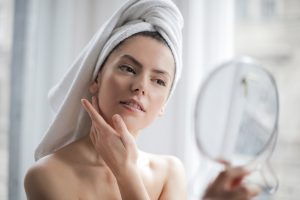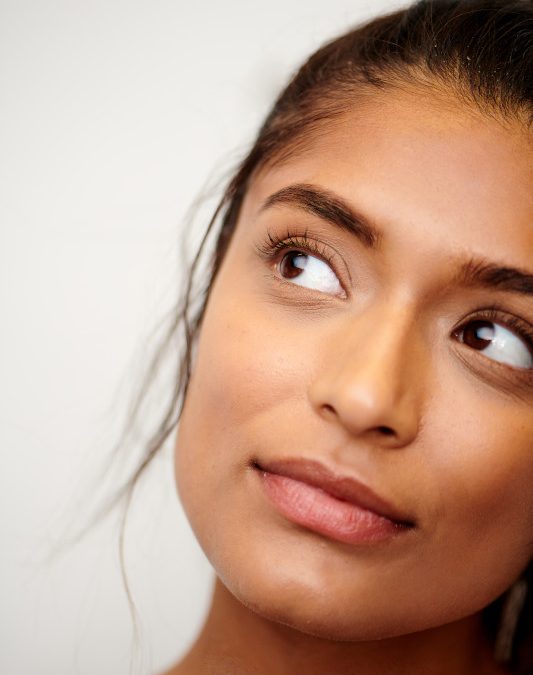We all have different skin. It reacts differently, it feels different and the way we treat it can have different outcomes. Our individual skin type is determined by how much or how little oil is produced. That’s something we can’t necessarily control. However, external triggers such as diet, medication, stress, environment and even your skincare route can affect your skin’s oil production.
There are six basic skin types: oily, dry, ageing or sun damaged, sensitive, combination and normal. Each of these skin types are identifiable by certain traits. Have a read through and take a look at your skin. What skin type are you, and are you using the right products to protect and balance your skin’s natural oil production?
Oily skin
An oily skin type tends to be shiny with enlarged pores commonly around the nose, chin and forehead. These enlarged pores can lead to an increased number of blackheads and/or blemishes. Oily hair is also a sign of an oily skin type.
Is your skin behaving badly? Click here for professional advice on how to deal with break-out prone skin.
Dry skin
Dry skin types tend to appear scaly and flaky. Your skin may feel tight after cleansing and dry to the touch. This dryness can also cause red patches. Another sign is if you suffer from dry hands too.
Ageing/sun damaged skin
Fine lines and wrinkles are a key trait of ageing skin. Ageing is a fact of life, but lifestyle and environmental factors (such as sun damage) can increase the speed of ageing and there are products available to reduce the appearance of these fine lines and wrinkles. Hyperpigmentation (commonly known as age spots where skin darkens in patches) can also occur. Wrinkles start to appear around the eyes, mouth and forehead and skin can feel loose due to the natural loss of elasticity.
Want to know how to combat the signs of ageing? Why not try a CACI non-surgical facelift?
Combination skin
This is the most common skin type to have. With medium sized pores and an oily T-zone, the rest of your skin will feel smooth and have an even texture or be noticeably dry. You may also find an increase in blackheads around your nose.
Sensitive skin
Red patches and irritation are common for sensitive skin types. Your skin will feel delicate with fine pores and potentially broken capillaries around the nose and on the cheeks. Be particularly careful when choosing your skincare products as using the wrong ones can cause rashes and further irritation.
Sensitive or sensitised? Click here to find out which one you are.
Normal skin
A normal skin type will have small pores and a healthy glow to their complexion – although blemishes can still occur in younger years due to changes in hormones. With an even texture and tone and no noticeable problems, this is certainly the rarest skin type. Especially when you consider how much our environment impacts our skin. You could have a normal skin type, but stress, pollution and greasy food could be saying otherwise.
Analyse and protect your skin

Ask your therapist to conduct a free skincare analysis to understand your skin type and what lifestyle factors may be affecting your oil production. They can point you in the right direction when it comes to skincare products and designing a routine that suits you. Our skin tells us a lot about ourselves and by following simple steps such as drinking more water or using an SPF you can dramatically improve your complexion.
Read more about our range of Dermalogica facials available here.
Speak to a therapist at bijou today on 01189731158 for your FREE consultation.



Recent Comments